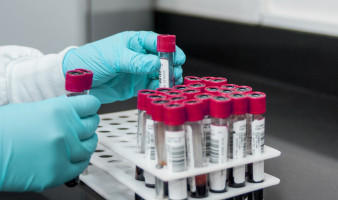
78 TNBC biopsies from patients with different responses to chemotherapy were analysed for API-5 expression before any treatment.
Further studies on API-5 expression and inhibition were performed on patient-derived TNBC xenografts, one highly sensitive to chemotherapies and the other resistant to most tested drugs.
Clinical analyses of the 78 TNBC biopsies revealed that API-5 was more markedly expressed in endothelial cells before any treatment among patients with chemoresistant TNBC, and this was associated with greater micro-vessel density.
Dr. Melanie Di Benedetto and Dr. Guilhem Bousquet said, "Apoptosis Inhibitor-5 (API-5) also called Anti-Apoptosis Clone 11 (AAC-11) is a 58-kDa nuclear protein highly conserved across species."
API-5 was originally identified as an anti-apoptotic protein in mouse fibroblasts and in human cervical carcinoma cell lines, in which API-5 significantly enhanced cell survival after serum deprivation or ultraviolet sensitisation.
In vitro, a decrease in API-5 expression sensitised human cancer cell lines to apoptosis, and increased their sensitivity to anticancer drugs.
In human osteocarcinoma cells, API-5 promotes survival through the inhibition of an E2 promoter-binding factor, and the integrity of the leucine zipper domain is required for the anti-apoptotic functions of API-5.
Previous authors engineered an anti-API5 peptide composed of the LZ domain fused with the Antennapedia/Penetrating protein domain since the integrity of this domain is essential for the function of API-5.
This LZ peptide is able to penetrate cells in vitro, and to cancel the API-5/acinus interaction.
In this pre-clinical study, the authors studied the expression of API-5 in patients with chemotherapy-resistant TNBC and the inhibition of API-5 in a resistant TNBC xenograft model.
The Benedetto/Bousquet Research Team concluded that Hypoxia is associated with drug resistance and they have previously demonstrated a link between cancer stem-cells, hypoxic niches and resistance to sunitinib in renal cell carcinoma.
In vivo, hypoxia has been shown to induce resistance to apoptosis in human cervical cancer cell lines through a selection of p53-mutated cells.
Source: Impact Journals